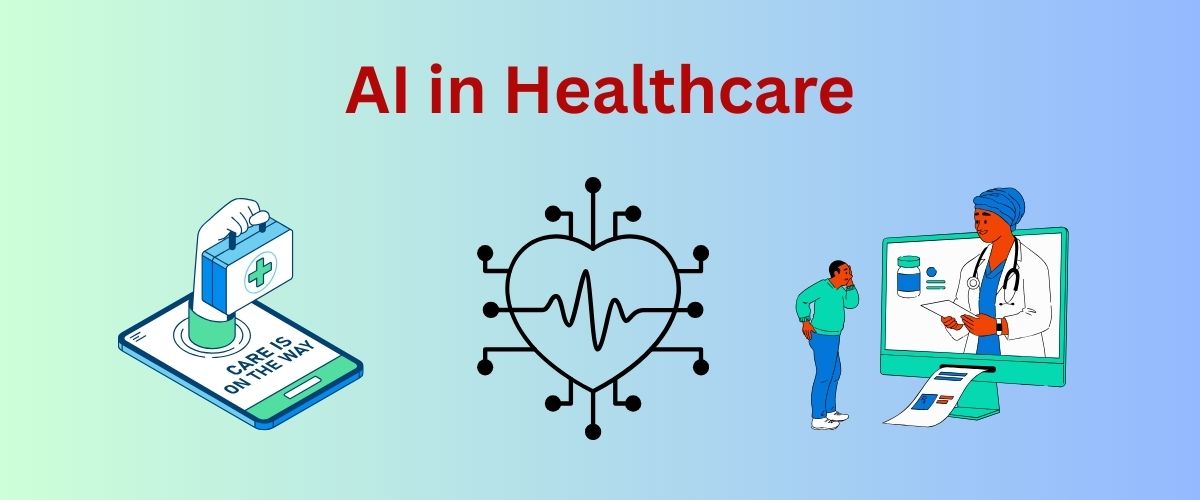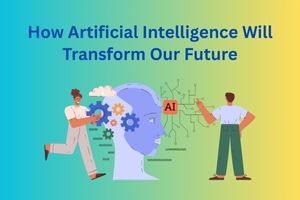We’re entering a new era where artificial intelligence (AI) is set to transform life as we know it. From predicting illnesses to creating smart cities and personalized education, AI has the power to make our world faster, safer, and smarter. But with this progress come big questions: how do we protect privacy, save jobs, and ensure AI is used fairly? AI holds amazing promise—but its future depends on how wisely we use it.
The Current State of AI Technology
Artificial Intelligence (AI) has grown from a science fiction idea into a real technology that’s changing our daily lives. From voice assistants like Siri and Alexa to self-driving cars, AI is no longer just a concept—it’s everywhere. Thanks to progress in machine learning, natural language processing, and neural networks, machines can now do tasks once thought possible only for humans.
How AI is Shaping Our World
- Everyday use: AI powers voice assistants, recommendation systems, and smart devices.
- Business impact: Companies use AI analytics to understand customers and improve decisions.
- Healthcare: Doctors rely on AI for faster, more accurate diagnoses.
- Finance & logistics: AI helps detect fraud, manage risks, and streamline supply chains.
- Entertainment: From personalized playlists to AI-driven content, media is becoming smarter.
The development of full artificial intelligence could spell the end of the human race.Stephen Hawking
The Future of AI
- Researchers are working on making AI models easier to understand and able to learn from less data.
- The mix of AI with IoT (Internet of Things) and blockchain could open up exciting new opportunities.
- Ethical issues—like bias, privacy, and job loss—must be addressed to ensure AI benefits everyone.
In short, AI is powerful, fast-growing, and full of potential—but its future depends on how responsibly we use it.
Key Areas Where AI is Making an Impact
Artificial Intelligence (AI) is transforming industries worldwide, bringing speed, accuracy, and smarter solutions.
- Healthcare: AI analyzes medical images to detect diseases early, supports accurate diagnoses, and helps doctors create personalized treatment plans.
- Finance: AI automates trading, spots fraud in real-time, and powers chatbots for personalized banking and financial advice.
- Transportation: Self-driving cars use AI to navigate safely, reduce accidents, and improve mobility. AI also boosts logistics by predicting demand, planning routes, and managing inventory.
AI is not just improving efficiency—it’s reshaping the way we live, work, and move.
AI in Healthcare
Artificial Intelligence (AI) is reshaping healthcare with faster, smarter, and more precise solutions.

- Early Diagnosis: AI scans X-rays, MRIs, and CTs to detect diseases in their earliest stages, helping doctors act quickly and improve patient outcomes.
- Personalized Medicine: By analyzing genetics, lifestyle, and medical history, AI helps create treatment plans tailored to each patient, reducing risks and improving effectiveness.
- Efficiency & Support: From managing records to scheduling, AI automates routine tasks. Chatbots and virtual assistants give patients round-the-clock support, making care more accessible.
AI is not just supporting doctors—it’s transforming how we prevent, diagnose, and treat illness.
The Role of AI in Education
Artificial Intelligence (AI) is transforming education by making learning more personalized, inclusive, and effective.
- Personalized Learning: AI-powered platforms adapt lessons to each student’s pace and needs, ensuring no one is left behind or unchallenged.
- Real-Time Feedback: AI tools quickly assess student work, highlight mistakes, and give instant feedback—helping students learn faster and teachers adjust their strategies.
- Access & Inclusivity: Online platforms and AI translation tools make quality education available anywhere, breaking barriers for remote and multilingual learners.
AI in education isn’t just about technology—it’s about creating smarter, fairer learning for everyone.
How AI is Shaping the Future of Work
Artificial Intelligence (AI) is reshaping the future of work, offering both opportunities and challenges.
- Automation of Routine Tasks: AI handles repetitive jobs like data entry and customer support faster and more accurately, freeing humans to focus on creativity, problem-solving, and critical thinking.
- Job Shifts: While some roles may disappear, AI also creates new opportunities in fields like data science, machine learning, and AI ethics. In many cases, it works alongside people, boosting their efficiency.
- Skills for the Future: Success in an AI-driven workplace depends on adaptability. Continuous learning, upskilling, and reskilling will be key for both workers and organizations.
The future of work will be more collaborative, technology-driven, and skill-focused—with AI as a powerful partner, not just a replacement.
Ethical Considerations in AI Development
As artificial intelligence (AI) advances, addressing its ethical challenges is essential.
- Bias & Fairness: AI systems can inherit biases from data, leading to unfair outcomes in hiring, lending, or law enforcement. Training on diverse datasets and ensuring transparency are key to building trust.
- Privacy: AI relies on massive amounts of personal data. Strong protection measures—like encryption, anonymization, and clear data policies—are needed to safeguard privacy and empower users.
- Job Displacement: Automation boosts efficiency but can reduce jobs in some sectors. Reskilling, upskilling, and supportive policies will help workers adapt to new roles in an AI-driven economy.
By focusing on fairness, privacy, and responsible adoption, we can ensure AI benefits society while minimizing risks.
The Future of AI: Trends and Predictions
The future of artificial intelligence (AI) is full of possibilities, with advancements set to reshape how we live, work, and connect.
- Smarter Language Tools: With progress in natural language processing (NLP), AI will better understand and generate human language, making chatbots, assistants, and translation tools more seamless—breaking down global communication barriers.
- AI + IoT Integration: Smart homes and cities will thrive as AI works with IoT devices to optimize energy use, enhance security, improve transport, and create more efficient, sustainable environments.
- Healthcare Breakthroughs: AI will drive personalized medicine, faster drug discovery, and advanced treatments by analyzing complex genetic and biological data—reducing costs and improving outcomes.
AI’s future promises greater convenience, efficiency, and innovation, with the potential to transform nearly every aspect of daily life.
Preparing for an AI-Driven World
As we move toward an AI-driven world, preparation is key to making the most of opportunities while managing challenges.
- Lifelong Learning: Skills can quickly become outdated in a fast-changing economy. Continuous learning, reskilling, and training programs will help individuals stay relevant.
- Supportive Policies: Governments must set clear rules around ethics, privacy, and job security while also investing in AI research to stay globally competitive.
- Collaboration: Businesses, schools, and policymakers need to work together, share resources, and create best practices to ensure AI benefits everyone.
With learning, smart policies, and collective effort, we can shape a future where AI drives growth, innovation, and social well-being.
90% of the world’s data was created in just the last two years – and AI depends on this data to learn and grow smarter every day.
Conclusion
As we step into an AI-driven future, it’s clear that artificial intelligence will touch every part of our lives—improving healthcare, transforming education, reshaping work, and making daily life smarter. But with these opportunities come responsibilities: protecting privacy, addressing bias, and preparing for workforce changes.
The path forward requires continuous learning, strong policies, and collaboration across sectors. By staying adaptable, innovative, and committed to ethical AI, we can ensure that technology serves humanity’s best interests.
The future of AI is filled with promise. If we guide it wisely, it can lead to a world that is not only more advanced, but also equitable, inclusive, and sustainable—a future shaped for the good of all.
FAQs
Here are the commonly asked questions related to How Artificial Intelligence Will Transform Our Future:
AI helps doctors detect diseases early through medical image analysis, creates personalized treatment plans, and even speeds up drug discovery. It also automates hospital tasks, giving healthcare workers more time for patients.
AI makes learning more personal by adjusting lessons to each student’s pace. It gives instant feedback, supports teachers with insights, and uses online tools and translations to make quality education accessible worldwide.
AI will automate routine tasks but also create new roles in data science, robotics, and AI ethics. The workplace will shift toward skills like creativity, problem-solving, and emotional intelligence, with people and AI working side by side.
Key concerns include bias in algorithms, misuse of personal data, and job displacement. To address these, AI systems need fairness, strong privacy protections, and supportive policies for affected workers.
The best way is through continuous learning and reskilling. Schools, businesses, and governments must provide training opportunities, create supportive policies, and encourage innovation while protecting ethical values.








